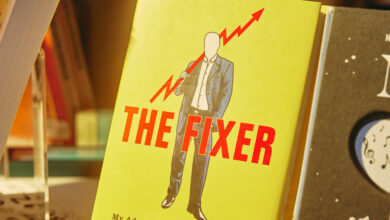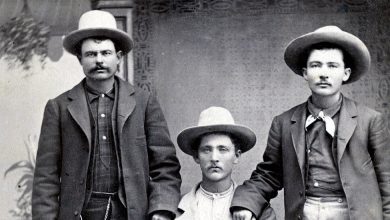Is It OK That I’m OK With Our Mom’s Adultery?

Our dad died a year ago, and our mom recently told my sister and me that she cheated on him for the last 10 years of their marriage. I don’t think our dad ever knew; he wore his heart on his sleeve, so he couldn’t have hidden that sort of thing.
My sister and I had wildly different reactions to this information. My sister is horrified and accused my mother of never having loved him. I had a different take. Our mom says that she loved our dad and being with him romantically (living together, raising a family, intimate kisses, etc.), but that he wasn’t the best sex of her life. So she cheated. But she made sure he never found out. And my mom and dad still slept together, because she knew that he enjoyed having sex with her and loved her body (and the sex was good for her, even if not the best).
I don’t feel that it makes sense to be mad at my mom for the infidelity. It’s true that she didn’t want to be with him in that “I only want you” way, but she loved him enough to make him feel as if she did. If from his point of view it was a perfect relationship and he died happy, does it really matter that he didn’t know all the details?
I feel I am missing something in not being upset at my mother. To be clear, I don’t think she should have told us, because there was no reason to. But I am trying to think about whether the infidelity itself was wrong, because the fact that my sister and I see things differently is driving a wedge between us. Name Withheld
Your mother betrayed your father. Your parents didn’t have an open relationship; her actions were inconsistent with an understanding of their marriage she allowed him to believe in. The fact that he never found out — and let’s assume it is a fact — doesn’t make it OK. Dishonesty is not redeemed by remaining undiscovered. This, I think, is what your sister gets right.
But your mother valued her relationship with your father. I’m guessing she made the judgment that disclosing the truth — both her sexual discontent and her interest in sleeping with others who excited her more — would have embittered (and perhaps ended) an otherwise fortifying partnership, to their mutual detriment. Other things being equal, a life lived in the light of reality — the reality of what’s going on in your significant relationships — is better than one in which your happiness depends on ignorance. But other things are sometimes far from equal. Human lives are complicated. This, I think, is what you get right.
The one person whose point of view I don’t really grasp is your mother’s. Why did she tell you all this? If she deceived your father in order to keep him happy and secure the relationship, why make such a different calculation with her children? She wasn’t generally moved by the thought that living in the daylight of truth is of central ethical importance. Perhaps she didn’t understand your sister, and failed to realize that she’d be visiting on her daughter some of the anguish she spared her husband.
I recently applied for the associate-dean position in my college at a public university, and after an initial interview I received an email letting me know that I was not being moved forward as a candidate. I’m fine with that — especially because the position shifted from what it was originally. However, in letting me know, administrators stated that as a next step they would be inviting candidates to campus, and those candidates would be engaging in various ways with the campus community. Because I had applied for the position, they asked that I recuse myself from interacting with those who were actually up for the job (by not joining public presentations and Q. and A. sessions, for instance) to avoid any “conflict of interest.”
This surprised me as I have a strong interest in the direction of the college, evidenced by my application, and this person will at some level become my supervisor and control how resources are allocated. As a faculty member, I have no input into the hiring decision; that decision is made by the college dean and upper administration, and I no longer have a conflict because I have been removed as a candidate. I admit I am offended; it is as if there is a concern that I might not behave professionally in a public forum. I assure you that I have no history which suggests my behavior would be anything but exemplary. Is there any ethical reason that I should recuse myself from participation? Name Withheld
The reference to a conflict of interest, I agree, is puzzling. Given that you’re no longer in contention for the job, the only stakes you have in what happens are the legitimate concerns of a member of the faculty. What private benefit would come to you from undermining (or advancing) a candidate? Talk of recusal here seems just confused. If the implication is, as you suggest, that your resentment at not having been made a finalist would lead you to be discourteous to candidates, you’d be justified in taking offense. I would write back and say that, because you are not aware of any conflict of interest, you are not going to recuse yourself from the normal involvements of a faculty member in meeting candidates for the deanship. And you might want to discuss what happened with representatives from your union (should you be represented by one).
My friend had her knee replaced. My husband is a radiologist. Despite his reluctance to be involved, my friend often sends her X-rays to him. Recently she sent a set of X-rays to me, and I forwarded them to him. He immediately noticed her femur had been “cracked” through the marrow, suggesting the surgeon made an intraoperative mistake. He checked with a colleague, who agreed this was an unusual finding and is likely wrongful.
My husband is furious with me for involving him and refuses to allow me to inform my friend of his interpretation. But neither her doctor or the facility have disclosed anything, and her recovery will be longer and possibly more painful. Do I have any obligation to my friend to tell her what I know, or even just to suggest that she should go over the X-ray in person with the surgeon? Name Withheld
What should we make of the fact that your husband looked at the images and took the trouble to confirm his suspicions with a colleague, but wants to keep the patient from learning that she may have a problem? It sounds as if he was willing only to provide reassurance and doesn’t want to get entangled in a case of malpractice. He would share good news but not bad — and that’s not a choice he can ethically make.
A patient is entitled to seek a second opinion in the interpretation of diagnostic evidence. It’s true that your husband isn’t your friend’s doctor, but he’s evidently a medical professional qualified to render a judgment, and so was the colleague with whom he consulted. She was taking advantage of your friendship, but in a not-unreasonable way. Your husband would have been within his rights to refuse to look at the post-op X-rays. Yet once he analyzed them, he had a piece of information relevant to your friend’s treatment that she was entitled to have, too.
If you’re a doctor who has grounds for suspecting that a patient has not been informed of facts pertinent to her care, you have, as the American Medical Association agrees, a duty to report it to the relevant clinical authorities. Given that the facility where the surgery was performed has not disclosed this problem to your friend, there’s reason for concern that she’s being treated without a proper understanding of her situation. (Female patients are at particular risk of the kind of fracture you describe, as it happens.) Medical experts I’ve consulted do say the condition could have implications for clinical treatment and management. And if her doctors are aware of the problem but haven’t told her, they’d be violating the ethical standards of their profession.
You should certainly tell your friend that you think she should take those X-rays to get an official second opinion. Ideally, though, you’d first let your husband know that you’re doing this — maybe it will prompt him to do the right thing himself.
Kwame Anthony Appiah teaches philosophy at N.Y.U. His books include “Cosmopolitanism,” “The Honor Code” and “The Lies That Bind: Rethinking Identity.” To submit a query: Send an email to [email protected]; or send mail to The Ethicist, The New York Times Magazine, 620 Eighth Avenue, New York, N.Y. 10018. (Include a daytime phone number.)





